Best Start Foods – Boost family incomes
Best Start Foods – Boost family incomes
Scotland, Aberdeenshire, Peterhead
Best Start Foods – Boost family incomes
Visited Peterhead today Merv Howard
Thunderstorm warning
Free bus travel in Scotland
8 Best Reasons not to feed seagulls
Scottish Government covid protection levels update
From Monday (19 July) Scotland will move to Level 0, with modifications on previous guidance:
Scotland will move to Level 0 with Main changes new things:
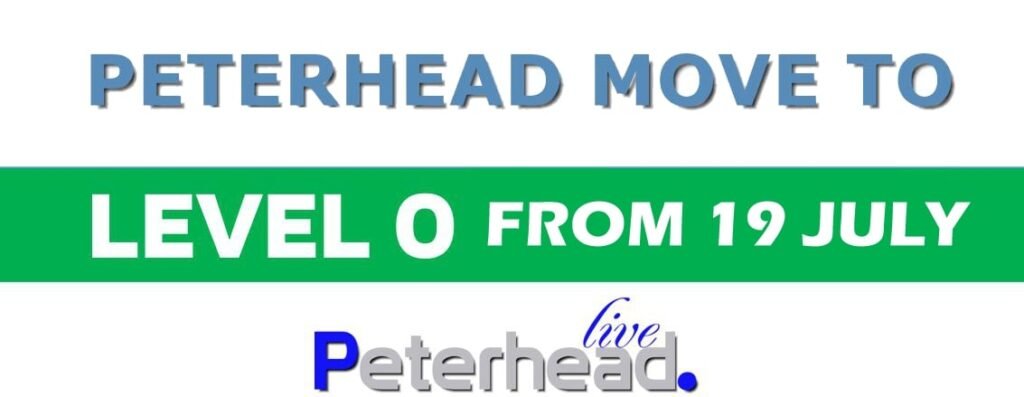
Check the level for an area using the postcode tool.
At Level 0:
Everyone is encouraged to get tested, as around 1 in 3 people with COVID-19 do not have symptoms. Testing is free and results are available in around 30 minutes. Read guidance on getting tested.
Places and business that can open at Level 0 include:
Places and business that must close at Level 0 include:
If you’re a parent or carer who’s looking to build confidence and learn new skills then our online course “Foyer Families” is just for you.
“Foyer Families” – FREE online course starts on Tuesday 24th August within Aberdeenshire and runs for 16 weeks.
It’s a great opportunity to gain important skills and accredited qualifications while cultivating a meaningful team experience– at a pace that works well for people with young children and busy lives!
FREE online course – Foyer Families is a 16-week fully funded programme created and delivered by Aberdeen Foyer which will help you to:
FREE online Course dates
This course will run from the 24th of August 2021 to the 10th of December 2021
Every Tuesday, Wednesday & Thursday
9.30am to 2.30pm
Aberdeen Foyer is working in partnership with North East Scotland College to deliver a City & Guilds Extended Level 1 Certificate in Employability skills. REHIS Food Hygiene and Pediatric First Aid certificates will also be available during the course. Child development workshops will also be delivered.

Additional support such as childcare provision and access to digital kit can also be provided during the course.
The course will be delivered online with access to course leaders and personalised support.
Is this course for me?
If you Are a parents/carer with children under 12 looking to do any of the following:
Then this FREE online course is for you.
As part of Foyer Families you’ll complete 5 City and Guilds units:

FREE online Course Content
Week 1/2: Getting to know you
A chance to get to know one another and set the foundation for an exciting journey with Foyer Families.
Week 3/4: Building personal confidence
Working together to understand personal confidence, while branching out into related activities to help build your own personal confidence.
Week 4/5: Contributing to own healthy living
Looking closely at what contributes to a healthy lifestyle. Guided cooking sessions and Food Hygiene will be used to support your learning along with a range of relevant activities.
Week 6/7: Effective skills and qualities
Working together to highlight and build upon existing skills to prepare you for the working and learning environment.
Week 8/9: Managing personal finance
Focusing on planning and preparation you will gain the skills to develop budget plans and financial inclusion sessions will help you to manage your finances.
Week 10/11/12: Coping with change
Encourages you to explore the different types of change, including the impact of change and strategies to help you to cope with change.
Week 13/14: Skills development
Helping you to build your CV for potential job opportunities and preparing you for mock interviews and build progression pathways.
Week 15/16: What’s next?
Reviewing 16-week programme with discussion about future steps and finally your graduation!
Katie Summers (Aberdeenshire) M: 07979 199 896
katie.summers@aberdeenfoyer.com
We can even help with childcare and digital kit if needed.
If you think this might be for you, or a family member/friend – then please get in touch by emailing
Eligible families can apply for a grant of at least £120 to help with the cost of school uniforms.
The Scottish Government and local authority leaders have reached an agreement to increase the national school clothing grant to a minimum of £120 per eligible primary school pupil and £150 per eligible secondary school pupil. This will be supported by £11.8 million of additional funding to local authorities.
The announcement marks another commitment for the first 100 days of this Government.
Education Secretary Shirley-Anne Somerville said:
“School uniforms can place a significant financial burden on families, some of whom are already facing additional hardship as a result of the pandemic.
“This school clothing grant will help to relieve some of that pressure for around 145,000 families and it will help to ensure that all children can go to school feeling comfortable, confident and ready to learn.”
COSLA Children and Young People’s spokesperson Councillor Stephen McCabe said:
“Councils and schools are working to tackle the costs of the school day, ensuring that all children are able to fully participate in their education. Working with the Scottish Government, we are pleased that the national minimum school clothing grant has been increased and that families can get extra support as we continue on the road to recovery from the pandemic.”
Eligible families can apply for the school clothing grant through their local council.
Hospital Visiting changes
Today’s statistics of COVID Scotland have actually just been published on the Scottish Government’s website, given that today’s briefing is a bit later than normal so I am going to quickly summarise these.
COVID Scotland – Three thousand one hundred and eighteen positive cases were reported yesterday which is 11.6% of all of the tests carried out.
COVID Scotland – The total number of confirmed COVID Scotland cases for the duration of the pandemic is now 277,335.
COVID Scotland – As of today 215 people are receiving hospital treatment – that is an increase of 13 since yesterday.
And 20 people are in intensive care, and that is the same number as yesterday.
COVID Scotland – Sadly, one further death has been reported and that takes the total number of deaths registered, under our daily definition to 7,713.
And, as always, my deepest condolences are with everyone who has lost someone as a result of the virus.
Let me also briefly update on the vaccination programme.
As of this morning, 3,781,887 people have received a first.
COVID Scotland: That’s an increase of 16,508 since yesterday.
And 9,420 people got a second dose yesterday, which brings the total number of second doses now to 2,701,195.
Today’s case numbers reinforce the pattern that we have seen over the past week.
There has been a much faster increase in cases than at any time since the start of this year – in fact, over the past 7 days we have reported more than twice as many new cases as we did in the previous week.
In recent days, the numbers of positive cases being reported has also been higher than at any previous point in the pandemic.
It is, however, important to put that into context, and there is two contextual points that I think it is worth me making at this stage.
Firstly, and before I make this one let me be very clear that this is early days and we need to monitor this over the course of coming days.
When we look at cases over the past week by the date the specimen was taken as opposed to the date we report the test result, which are the numbers we report on a daily basis, then what we see is a peak in cases last Tuesday and since then we have seen what appears to be a slowing down of the rate of increase.
So that is encouraging, but again I would stress that it is early days, we will want to monitor this carefully over the days to come and obviously see what that looks like a week form now.
But the second, perhaps more fundamental point of context is that while we are comparing case numbers now to the situation at the start of the year. It is the case that at the start of the year, which was the last time case numbers were anywhere near the numbers they are at just now, we were in much stricter lockdown.
Far, far fewer restrictions are in force now
So the reality now that now without vaccination the level of restrictions that are in place just now would undoubtedly be leading to far higher case numbers than is actually the case.
So that is the first sign that vaccination is actually having an effect.
But the number of new cases now is still a cause for concern – and it is obviously the main issue I want to talk about today.
Before I come on to do that, though, in a bit more detail, l just want to confirm a change that we have indicated this morning in relation to travel.
Because there is no longer a significant difference in case rates between Scotland and the following places, I can confirm that the travel restrictions relating to Manchester, Salford and Bolton are being lifted.
However restrictions will remain in place for now between Scotland and Blackburn with Darwen – where case levels remain higher than in those three other areas. We will undertake a further review of those restrictions, over the course of this week.
Let me return now, though, to the situation here in Scotland.
As we have been saying from the start of this year, we are very much in a race just now between the virus and the vaccines. Our job is to do all we can to make sure the vaccine stays ahead of the virus.
I should be very clear we are confident, very confident that the vaccines will ultimately win this race. The question is what happens between now and then.
If, over the next few weeks, the virus gets ahead, unfortunately we will see more people become ill, we will see more people die and we will see more significantly pressure on our National Health Service than will be the case if we manage to keep the vaccines ahead of the virus
The problem we have got just now is the virus is running faster than it has ever done previously.
COVID Scotland – The Delta variant that we are dealing with just now is – accounts for the overwhelming bulk of all new cases right now – is significantly more transmissible than previous variants.
And that is helping to driving the steep rise in cases that we have been seeing in recent days.
On the other hand, and this is the positive part, we know that the vaccines are breaking the link between cases and serious illness.
The nature of this wave of the virus is different both in nature but also in impact than previous waves.
Let me just illustrate that over the whole pandemic, round about 13% of all cases and 89% of all deaths have been in the over 65 year old age group.
However because virtually all over 65 year olds have now had both doses of vaccine, that is changing, and it is changing really markedly.
According to our most recent figures, those aged 65 or over are now accounting for just 2% of new cases. And what we have seen in recent days is that more than 80% of new cases are in people under the age of 44.
The impact of vaccination is also clear when we look at the data on hospitalisations.
Back in January, more than 10% , perhaps closer to 13 % of people who tested positive for COVID Scotland were being admitted to hospital within 14 days of the positive test.
By the start of June, the start of this month that had fallen to just 3%.
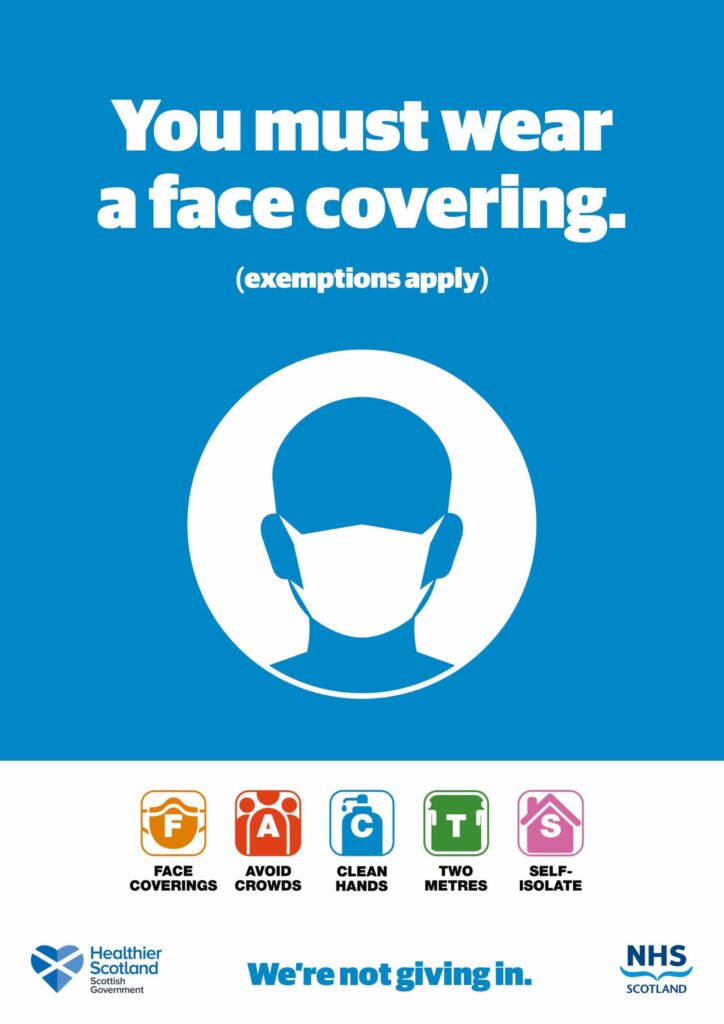
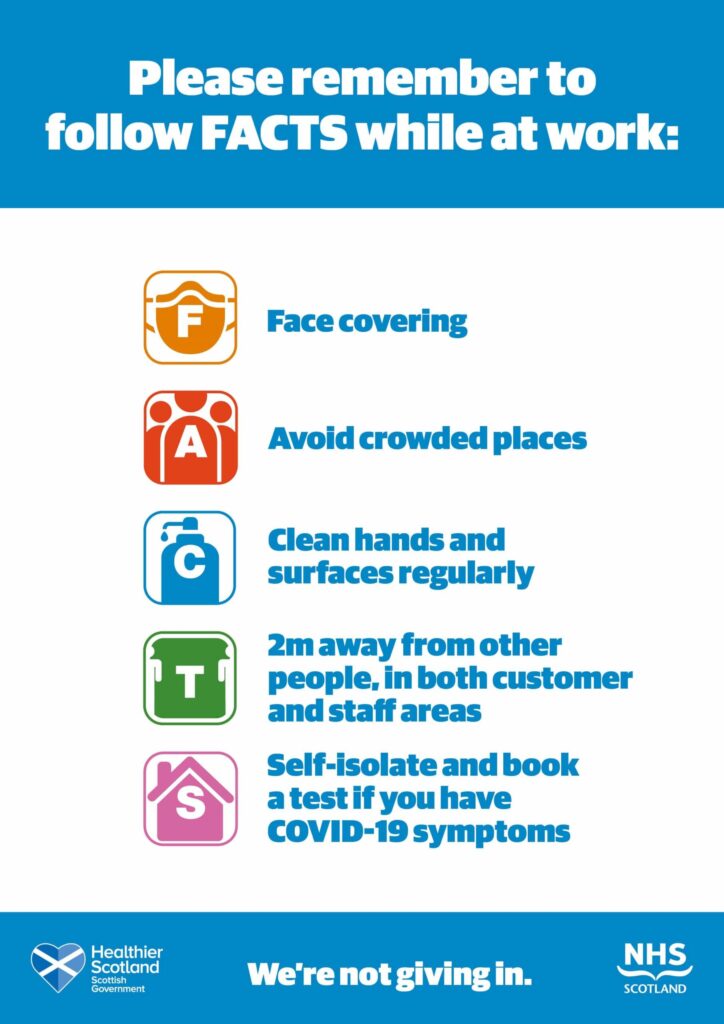
In addition, more of those who are admitted to hospital with COVID Scotland now are being discharged relatively quickly.
Again, that will reflect the fact that most new cases now are in younger age groups.
So in summary, fewer people who get COVID Scotland now need to go to hospital. And a higher proportion of people who do need to go to hospital, are not staying in hospital for as long.
Those two factors are helping, obviously, to cut down the serious illness impact of the virus, but also they are helping to protect the NHS from the full scale of the pressure that case numbers like this would have heaped on it before vaccination – and these factors are also what continues to give us confidence that vaccination is going to get us out of this. And that hasn’t changed.
That is why, notwithstanding this increase in cases that we are seeing just now – and obviously bearing in mind that we have to keep this under review, as we always have done – we do remain hopeful that we will be able to continue lifting restrictions first on the 19 July and then ultimately on the 9 August.
But – and this is an important but – how safely we get there will depend on what we do now.
This is a critical moment – I really can’t stress that enough – and over the next few weeks, it demands renewed care and vigilance from all of us.
COVID Scotland, The virus, as we can see, is still out there – and it is still potentially dangerous.
COVID Scotland Vaccination is very effective – after two doses – but no vaccine gives 100% protection.
And – importantly – while we are vaccinating as quickly as we can, there are still a lot of people who do not yet have the protection of both doses of the vaccine.
That includes many younger people. And while younger people are much less likely to fall seriously ill, they can still be badly affected, including of course from long COVID Scotland.
And finally, while we know that a lower percentage of people with COVID Scotland are ending up in hospital now, the fact is that a lower percentage of a very big number of cases, is still going to be a sizeable number.
So if cases continue to rise as they have been doing, we will see pressure on our NHS in coming weeks – and our worry is that that will set back work that is now being done to recover our NHS and catch up with the COVID Scotland backlogs.
And so my appeal to everyone right now is a serious one.
While we work hard to get to get people vaccinated – and more and more people are being fully vaccinated every days just now, please help us keep the virus at bay by taking care and following all of the vital health advice.
I know, I really do know, everyone is sick of this – and I include myself in that – I also know that many feel frustrated because we might think others are not taking this as seriously as we have been – but the fact is we are so close now, not just at seeing the light at the end of the tunnel, but actually reaching the light at the end of the tunnel.
Having come so far, let’s redouble our efforts, just for a few more weeks, to make sure that we get there and get there as safely as possible.
So there are three key things in particular that each of us really need to do right now to help make sure we get to those milestones, and get to those milestones with as little health impact as we possibly can.
I know that you will have heard this before.
But I’m stressing it again for a reason – with case levels so high, it really is vital that we all play our part in slowing the virus down while the vaccines continue to get ahead and do their work.
So, firstly, please continue to follow the key rules where you live and all of the basic but vital public health advice – for example on physical distancing, hand-washing and face coverings.
Also, meet other people outdoors as much as possible particularly when the weather is a bit nicer – no environment is risk free, but we know that outdoors is relatively safe compared to indoors.
If you are meeting people indoors, please stick to the limits and open the windows to maximise ventilation.
That does apply if you are watching football – or of course now with Wimbledon underway the tennis.
Good luck to Andy Murray for his next match. And good luck to England tonight.
But if you are planning to watch sport indoors with others, please remember that the maximum group size is 6 people, from 3 households. And the 3 households includes your own.
That rule is really important. And if we all stop and think about it, It is obvious why that rule is important, if somebody in your group has COVID Scotland and might not realise it, then if you have got a limited number of people and households in the house with them, then it is reducing the number of households that the virus might be able to spread to
In addition, try to make sure that people from different households are sitting as far apart as is possible. And as I said earlier, keep some windows open because that helps ventilation and the better ventilated a room is, the less risky it is going to be.
The second thing everybody is being asked to do, please get tested regularly – and that is especially important if you are planning to visit somebody. Test before you go. Because you are helping not just to spot if you have the virus, but you are obviously helping to protect those you are going to visit.
Lateral flow tests are available through the NHS inform website.
You can get them sent to you that way in the post. But also now you can collect them from local and regional test sites, and from your local pharmacies.
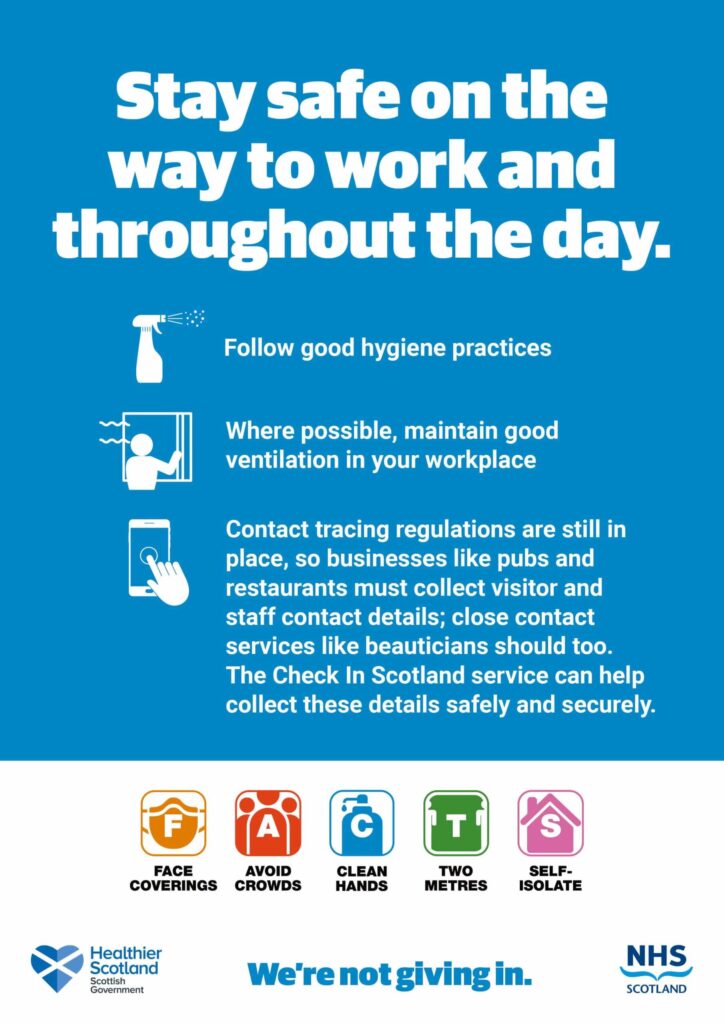
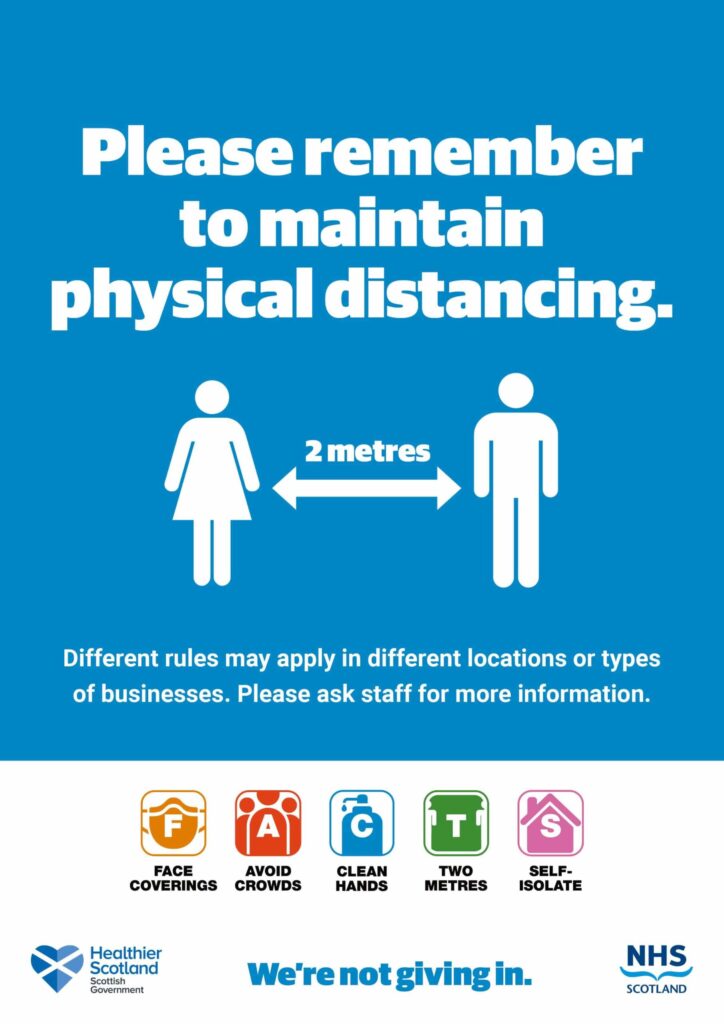
If you test positive through one of these lateral flow devices – or if you have symptoms of the virus – make sure that you self-isolate, and book a PCR test as quickly as possible, and that’s vitally important.
If you are identified as a close contact of someone with COVID Scotland, you will be asked to self-isolate for 10 days –usually through a text message so that gets to you as quickly as possible.
Self-isolation is really tough. It is probably more frustrating now that there are fewer restrictions in place than it was earlier in the pandemic .
But it remains vitally important to help break chains of transmission.
Thirdly and finally, our key and ultimate weapon against the virus is the vaccine.
So make sure that you do get vaccinated when you are invited to do so. And make sure you attend for both doses.
If you are aged 18 or over, you should definitely have received news of your first appointment by now.
If you haven’t done so – go on to the NHS Inform website, you can self-register. The new portal which allows you to do that opened yesterday.
And that means your up to date details can be submitted and you can get an appointment sent to you as quickly as possible
You should also go to the website if you need to rearrange an appointment, or if you had your first dose of the vaccine 8 weeks or more ago and want to bring your second appointment forward.
I cant stress enough how important it is that all of us get vaccinated with both doses.
It protects you – but it also protects your family, your friends and anyone that you come into contact with.
So please make sure that you get both doses when you get your invitation – I think, part of the collective, civic duty we all owe to each other.
But to be blunt about it, it is also our ticket out of this nightmare. So let’s make sure make full use of it and get out of this as quickly as possible
So these are the three points I want to stress.
Get vaccinated when you are asked, get tested regularly and particularly if you are going to visit somebody or going for an outing somewhere, and continue to follow the public health guidance.
The current surge in cases is a concern – we are seeing it happening elsewhere as the COVID Scotland Delta variants starts to take hold – so I’m not going to pretend it is not a concern.
But I do know that if we all exercise caution and common sense we can make a difference while the vaccine gets ahead. And I remain as confident, possibly even more confident than I have ever been that the vaccine is getting us out of this.
So if we can all can just keep the heed, keep doing all the things we know we need to do so that we can look forward to the vaccine getting us back to normal later this summer.